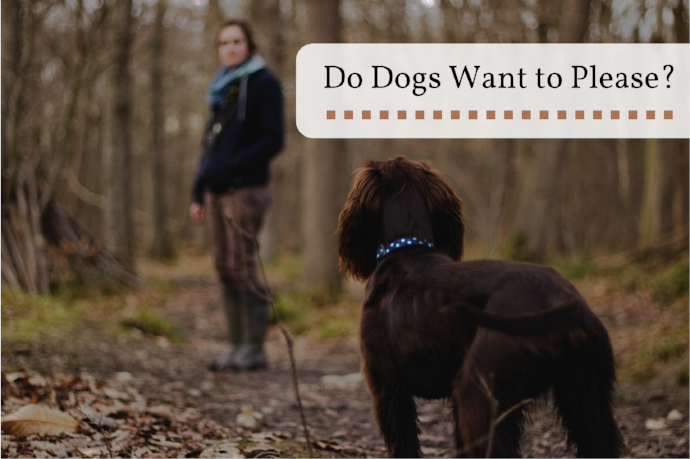Inside the Mind of a Dog Trainer: Do Dogs Want to Please Their Owners?
Updated June 2022
What does it mean when someone says their dog, "really wants to please"? What is the dog doing that leads them to this conclusion?
I think it has to do with the dog’s response to our pleasure. We smile, happy-talk, or laugh and the dog gets all wiggly.
But does this mean the dog wants to please?
I’m not so sure about that.
In my experience, dog behavior seldom springs from a desire to please people, but more often from a desire to please himself. Dogs tend to take a, “what’s in it for me?” approach to life.
Any number of problem behaviors seems to prove this point. If making people happy truly motivated dogs, why are they:
Not coming when called?
Stealing things off the counters?
Jumping on people?
Pulling on leash?
Surely not doing these things would make people happier? So why do they persist?
Dogs do things to get things and I find that their own pleasure, safety and comfort to be greater priorities than just happy humans.*
I’m not saying dogs don’t enjoy praise, smiles and laughter, but if we begin training with a belief that the dog's ultimate desire is to please his owner, we’re headed straight for frustration.
A massive part of training is teaching the dog that the behaviors that please us are incredibly valuable for him too – we have to increase the value of those good behaviors.
As much as dogs may enjoy our pleasure, pleasure, alone, isn’t usually worth enough to overcome the immense draw of intrinsically enjoyable behaviors. For best results, compound your pleasure reward with food or toys!
*Anecdotally, some will argue that dogs aren't always self-centered. What about the service dog, Excalibur, who pulled his unconscious partner out of an overflowing bathtub despite a fear of running water? These instances of selflessness cannot be ignored, but it's precisely because Excalibur's behavior was unexpected that it's so special.

